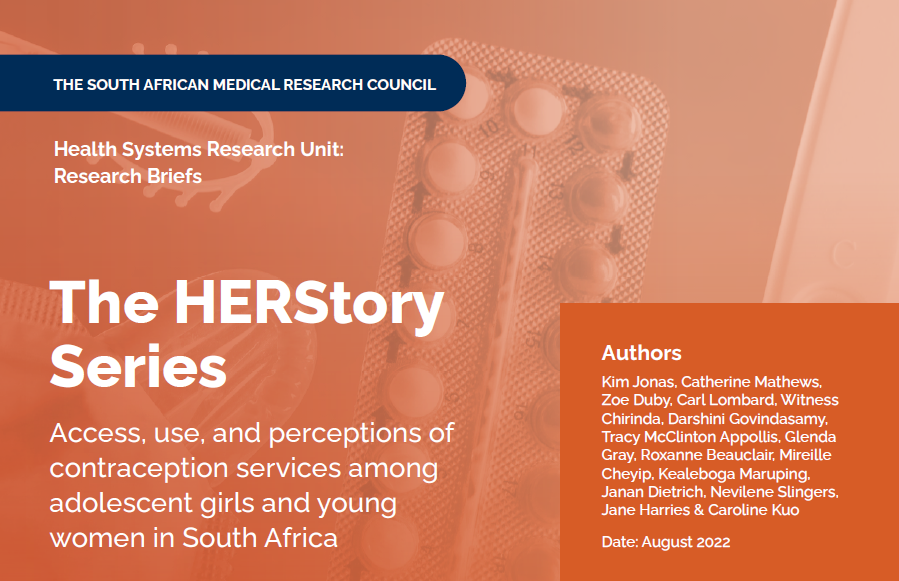The HERStory Series: Access, use, and perceptions of contraception services among adolescent girls and young women in South Africa
Summary
- Adolescent girls and young women (AGYW) have high unmet need for contraceptives, particularly in sub-Saharan Africa (SSA).
- In South Africa, about one in five women of reproductive age (15–49 years) have an unmet need for contraception, and among AGYW, there is an even higher unmet need (31%among adolescent girls aged 15-19 and 28% among young women aged 20–24 years).
- The high unmet need for contraception among AGYW contributes to teenage pregnancy rates which are decreasing at a slower rate in South Africa compared to other developing countries.
- Adolescent pregnancy is associated with poor health, educational, social, and economic outcomes.
- To reduce the unmet need for contraceptives and improve contraceptive uptake among AGYW, there is a need for accelerated efforts to improve the availability and accessibility of sexual and reproductive health (SRH) services for AGYW.
- Accessibility and use of these services depend on the capacity of the health systems within which these services are delivered.
View the complete Research Brief: Access, use, and perceptions of contraception services among adolescent girls and young women in South Africa
|
The South African Medical Research Council’s strategic plan includes the generation of new knowledge and its translation into policy and practice. In the Health Systems Research Unit, our research aims to inform and support decision-making in health and social policy to strengthen health systems, and therefore improve the health of South Africans. We evaluate the effectiveness and efficiency of care delivery models in communities, schools, and health facilities. To ensure relevance of our research, we apply implementation science principles and approaches, and engage and partner with Departments of Health at all levels of government, as well as with communities and other stakeholders. As a unit, we are developing research briefs based on manuscripts that have been published. Our intention is to disseminate key research findings to a broad audience, sharing the research briefs on multiple platforms to ensure wide reach, and work towards bridging the divide between academic research and the development of policy and practice. We aim to use these research briefs as a tool to summarise the key findings of recent studies, outline the implications for policy and practice in the South African context, and provide empirically based, practical, actionable information for policy makers, programme designers and implementers, practitioners, citizens and communities. |

